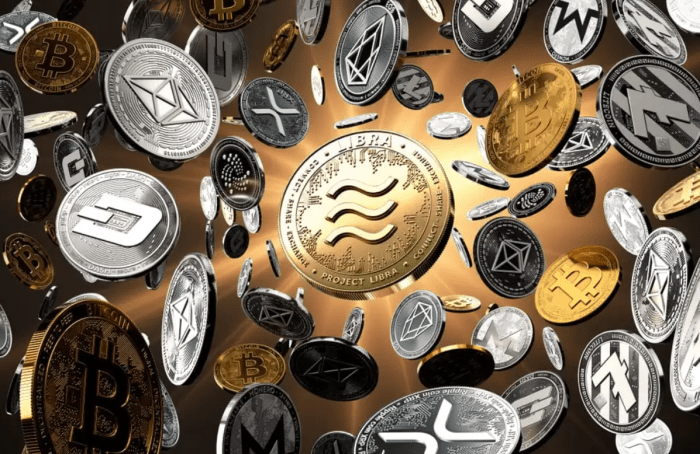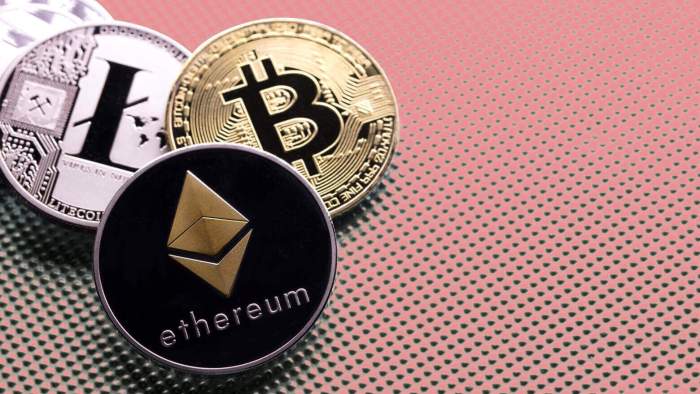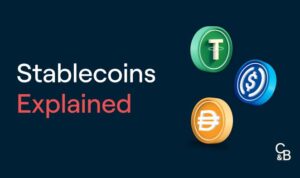Kicking off with altcoins guide, this comprehensive guide will take you through the world of alternative cryptocurrencies, from understanding their purpose to mastering the art of investing, trading, and mining. Get ready to dive into the exciting realm of altcoins!
Whether you’re a seasoned crypto investor or just starting out, this guide will equip you with the knowledge and strategies needed to navigate the altcoin market like a pro. From popular altcoins to wallet security and trading tips, you’ll find everything you need right here.
Introduction to Altcoins

Altcoins, short for alternative coins, are any form of cryptocurrency other than Bitcoin. They were created to offer alternatives to Bitcoin, each with its unique features and use cases in the ever-evolving cryptocurrency market.
Examples of popular altcoins include Ethereum, Litecoin, Ripple, and Dogecoin. Ethereum stands out for its smart contract capabilities, allowing developers to build decentralized applications on its blockchain. Litecoin, often referred to as the silver to Bitcoin’s gold, offers faster transaction speeds and lower fees. Ripple focuses on facilitating cross-border payments efficiently, while Dogecoin, initially started as a joke, has gained a strong community following.
Altcoins differentiate themselves from Bitcoin through various technologies and use cases. While Bitcoin serves as a digital currency and store of value, some altcoins like Ethereum focus on smart contracts and decentralized applications. Others may prioritize privacy features, scalability, or specific industry use cases, catering to different needs within the cryptocurrency ecosystem.
Investing in Altcoins: Altcoins Guide

Investing in altcoins can be both exciting and risky. It’s essential to research and evaluate different altcoins before diving in. Here’s a guide to help you navigate the world of altcoin investments.
Research and Evaluation
When researching altcoins, look into the technology behind the coin, the team involved, market trends, and community support. Evaluate factors like market capitalization, trading volume, and historical performance. Use reputable sources and forums to gather information and make informed decisions.
Risks and Benefits
Investing in altcoins can offer high returns but comes with higher risks compared to traditional investments. Benefits include potential for significant gains, diversification from traditional assets, and exposure to innovative technologies. Risks include volatility, regulatory uncertainty, and market manipulation.
Diversified Portfolio Strategies
Creating a diversified altcoin investment portfolio can help mitigate risks. Consider spreading your investments across different altcoins, industries, and market caps. Set clear investment goals, establish risk management strategies, and regularly monitor your portfolio. Remember to stay informed and adapt to market changes.
Altcoin Wallets
When it comes to storing your altcoins, having a secure wallet is crucial. There are different types of altcoin wallets available, including hardware wallets, software wallets, and paper wallets. Each has its own level of security and convenience.
Types of Altcoin Wallets, Altcoins guide
- Hardware Wallets: These are physical devices that store your altcoins offline, making them less vulnerable to hacks. Examples include Ledger Nano S and Trezor.
- Software Wallets: These are digital wallets that can be accessed via desktop or mobile devices. They are convenient but may be more susceptible to cyber attacks. Examples include Exodus and Electrum.
- Paper Wallets: These are physical printouts that contain your public and private keys. They offer offline storage but require careful handling to prevent loss or damage.
Importance of Wallet Security
- Securing your altcoin wallet is crucial to protect your funds from hackers and theft.
- Always use strong passwords and enable two-factor authentication for an added layer of security.
- Avoid sharing your private keys with anyone and keep them in a safe place.
Setting Up and Using an Altcoin Wallet
- Download the official wallet software or purchase a hardware wallet from a reputable source.
- Follow the instructions to set up your wallet, create a backup, and secure your private keys.
- Make regular backups of your wallet and update your software to protect against vulnerabilities.
Altcoin Trading
When it comes to altcoin trading, it’s essential to understand the basics of buying, selling, and trading altcoins on exchanges. This involves navigating the market volatility and implementing different trading strategies to maximize profits.
Trading Strategies
- Day Trading: Involves making trades within the same day to take advantage of short-term price movements.
- Swing Trading: Focuses on capturing gains in a stock or cryptocurrency over a period of days or weeks.
- Long-term Investing: Involves holding onto altcoins for an extended period, anticipating significant growth in the future.
Tips for Successful Altcoin Trading
- Do Your Research: Before investing in any altcoin, make sure to research the project, team, and market potential.
- Set Realistic Goals: Establish clear goals for your trading strategy and stick to them to avoid impulsive decisions.
- Diversify Your Portfolio: Spread your investments across different altcoins to reduce risk and maximize potential gains.
- Use Stop-Loss Orders: Set stop-loss orders to automatically sell your altcoins if the price reaches a certain point to limit losses.
- Stay Informed: Keep up with the latest news and developments in the cryptocurrency market to make informed trading decisions.
Altcoin Mining
Altcoin mining is the process of validating transactions and adding new blocks to the blockchain of a specific cryptocurrency, other than Bitcoin. While Bitcoin mining requires specialized hardware called ASICs (Application-Specific Integrated Circuits), altcoin mining can often be done using regular graphics cards (GPUs) or CPUs.
Hardware and Software Requirements
- Hardware: To mine altcoins at home, you will need a computer with a powerful GPU or CPU, depending on the algorithm used by the altcoin. Some altcoins may require specific hardware configurations, so it’s essential to research beforehand.
- Software: You will need mining software compatible with the specific altcoin you want to mine. Popular mining software includes CGMiner, BFGMiner, and NiceHash.
Mining Pools and Cloud Mining Services
- Mining Pools: Altcoin mining pools are groups of miners who combine their computational resources to increase their chances of solving a block and receiving the reward. By joining a mining pool, miners can receive more consistent payouts compared to solo mining.
- Cloud Mining Services: Cloud mining allows individuals to rent mining hardware and processing power remotely. This eliminates the need for physical mining rigs at home but may come with additional fees and risks associated with third-party services.
